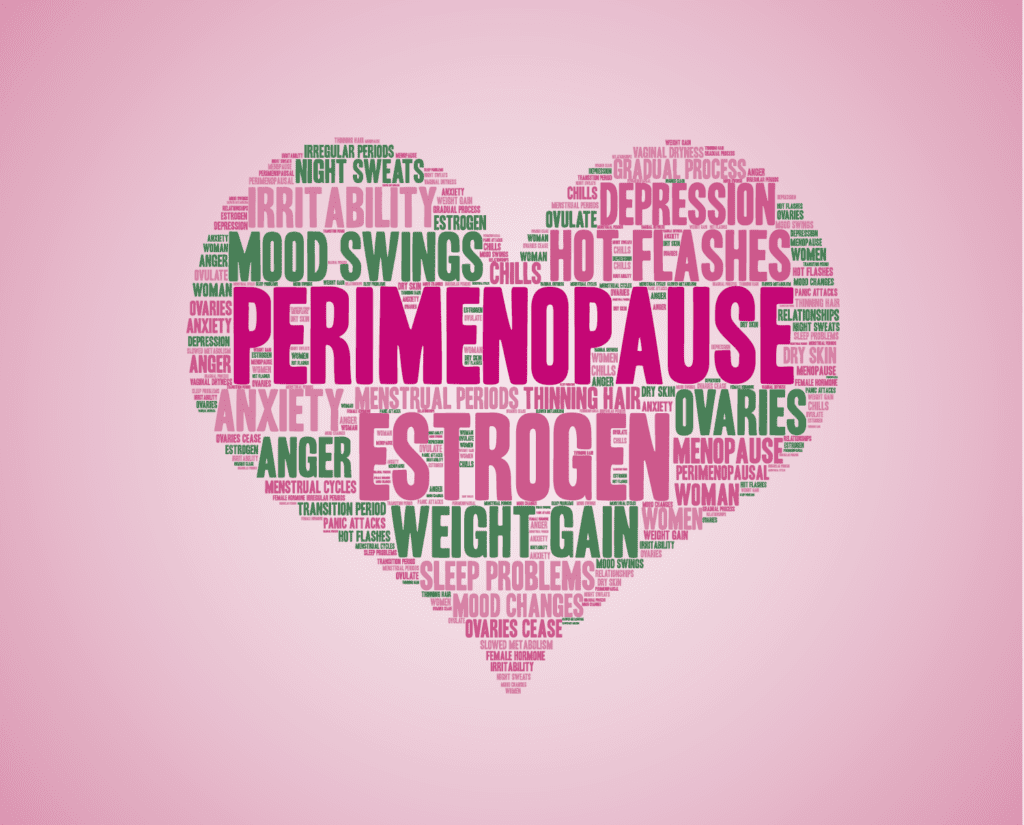
Menopause has gained a lot of publicity over the last couple of years and no doubt you may immediately envisage debilitating symptoms such as unpredictable and intense Hot Flushes and Forgetfulness or Brain Fog whenever the word is mentioned – but did you know that these are only two from a long list of possible symptoms and that many women have been experiencing changes to their bodies and often less impactful symptoms, long before they became debilitating This period leading towards Menopause is known as Perimenopause and understanding this transitional time is the key to a smoother and more empowered Pausal Journey.
The Early Stages of Menopausal Transition
Since creating Pause & Unite we’ve had the opportunity to hear from many women as they look for information and treatments to tackle symptoms, we encourage women to track their symptoms in different ways and to learn more about how their lifestyle influences hormones and their body. After doing this most women have told us that their perimenopause journey began years before they started looking for solutions and wish they had received this information at a younger age. We also hear from younger women who state, ‘I’m too young to be menopausal’, they are often leading busy lives juggling work, children, caring responsibilities and believe that the symptoms they’re experiencing are down to the stresses of everyday life. However, this may not be the case – for some younger women these may be the beginning stages of perimenopause. We are very passionate to help bridge this gap of awareness by educating younger women about hormones and show them how to look for and identify the signs of perimenopause, so that they can act much sooner and improve their chances for a smoother Pausal Journey.
Understanding the Stages of Menopause
Let’s start with defining the stages of Menopause:
- Menopause According to our featured specialist Dr. Sally Bell (Medical Expert specializing in Women’s Health/Lifestyle Medicine), Menopause – Is a Medical Term given to the point in life where you are unable to have babies, it is where those sex hormones that your ovaries have been producing in a cyclical nature during your reproductive life, decline and reach a new, steady but lower state taking you into the Post Menopausal era.
Technically Menopause is just the one day, the day which is 12 months after your last period. Currently the average age in the UK for women reaching Menopause is 51 years*, however, it can be experienced at a much younger age or due to surgery, cancer treatments or other health conditions.
- Perimenopause – Describes the transition time leading up to the day of Menopause, when production of our sex hormones, oestrogen, progesterone, and testosterone, change and ultimately decline within the body, these hormonal levels can be very erratic at times. It can cover a period of anything ranging from an average of three months to 10 years prior to Menopause and in that time, it will change the types of symptoms you have and its severity. Our mental, emotional health, cognitive ability, ability to cope with stress can all be impacted alongside, body hair – skin – teeth – bones, our heart health, gut health, vaginas, and libido. The list really does go on.
- Post Menopause – The rest of your life after the Menopause has been reached.
The Challenge of Diagnosing Perimenopause
Can you test for Perimenopause?
Unfortunately, even though tests to measure hormone levels are available, they are often not a reliable indication of whether you are perimenopausal as hormone levels naturally fluctuate day to day during this time and results from one blood test will not provide enough information. You will need to speak with a Health professional to considering several different factors before making a decision.
For more information on all aspects of menopausal health, specialist guidance, a supportive community along with downloadable resources including a variety of free menopause symptom trackers and questionnaires visit Pauseandunite.co.uk.
